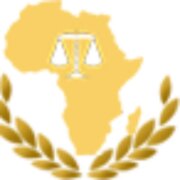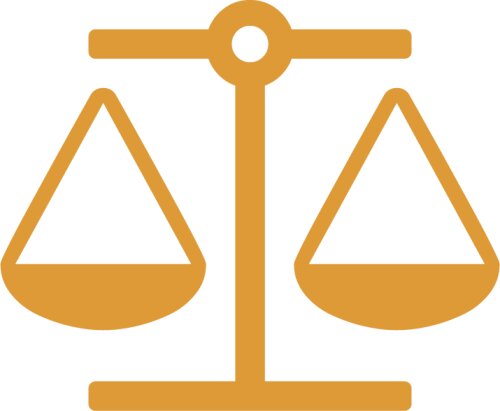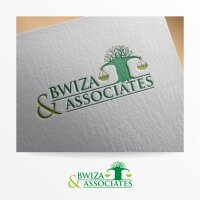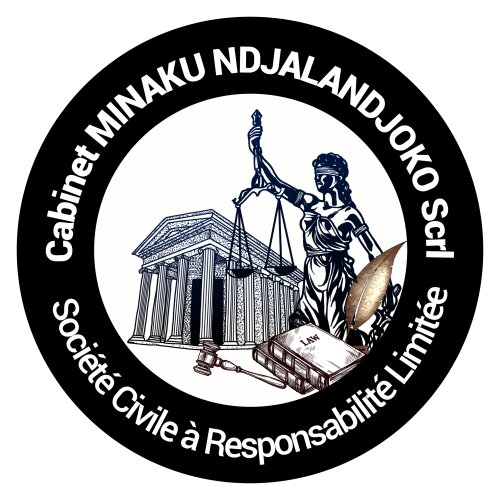Best Sanctions & Export Controls Lawyers in Kinshasa
Share your needs with us, get contacted by law firms.
Free. Takes 2 min.
List of the best lawyers in Kinshasa, DR Congo
About Sanctions & Export Controls Law in Kinshasa, DR Congo
Sanctions and export controls are legal mechanisms that regulate the movement of goods, services, technology, and financial assets across borders. In Kinshasa, Democratic Republic of Congo (DR Congo), these laws play a vital role in maintaining compliance with both national and international obligations. The primary purpose of sanctions is to restrict transactions and activities with certain countries, individuals, or entities deemed to pose a risk or violate international norms. Export controls, on the other hand, govern what goods and technologies can leave or enter the country, often to prevent the spread of sensitive items such as weapons, dual-use technology, and strategic resources.
Due to DR Congo's geographic location, mineral wealth, and involvement in international trade, businesses and individuals in Kinshasa must pay careful attention to sanctioned entities and export control measures. Failure to comply with these laws can result in severe legal, financial, and reputational consequences. Understanding how these laws apply locally and internationally is essential for anyone engaging in cross-border business or trade activities.
Why You May Need a Lawyer
Navigating the complex field of sanctions and export controls in Kinshasa can be challenging. Legal assistance is often necessary in several scenarios:
- Business Transactions: If you import or export goods, especially those considered sensitive or controlled, you may need guidance to ensure compliance with local and international regulations.
- International Dealings: When dealing with international partners, there is a risk of inadvertently transacting with sanctioned entities or countries, which can trigger legal penalties.
- Customs and Border Issues: Problems with customs clearance or seizure of goods often require swift legal intervention.
- Investigations or Audits: If your business is subject to an audit or investigation regarding sanctions compliance, legal advice is essential to protect your interests.
- Financial Transactions: Banks and financial institutions may freeze accounts or block transactions related to potential violations, necessitating legal support.
- Contracts and Agreements: Sanctions and export control clauses in contracts may impact your rights and obligations; a lawyer can help interpret and negotiate these terms.
Having a legal professional with expertise in this field can help prevent costly mistakes, manage risk, and resolve disputes efficiently.
Local Laws Overview
In Kinshasa, DR Congo, several key legal instruments and regulations govern sanctions and export controls:
- National Laws: The DRC government issues its own laws and directives regarding trade embargoes, prohibited goods, and restrictions on certain exports, especially minerals and precious stones due to concerns about conflict financing.
- International Obligations: DR Congo is a member of the United Nations and the African Union, both of which can impose sanctions or require export controls on specified countries or entities. Local authorities are responsible for enforcing these measures as incorporated into national law.
- Sectoral Controls: Minerals (such as cobalt, diamonds, and gold) are subject to specific export controls, including traceability requirements, certification schemes like the Kimberley Process, and restrictions aimed at preventing illicit trade.
- Financial Sanctions: The Central Bank of Congo may implement asset freeze and transaction bans against listed persons or entities, usually in response to international mandates.
- Customs Enforcement: The General Directorate of Customs and Excise (DGDA) is responsible for ensuring that imports and exports comply with all applicable controls and embargoes.
Non-compliance can lead to confiscation of goods, hefty fines, loss of licenses, or criminal prosecution. It is crucial for individuals and businesses to verify each transaction’s compliance status and stay updated on evolving regulations.
Frequently Asked Questions
What are sanctions and export controls?
Sanctions are measures restricting trade, financial transactions, or engagement with certain countries, organizations, or individuals. Export controls are laws regulating which goods, technology, or services can be exported or imported, especially those that could impact national security or international peace.
Who enforces sanctions and export controls in DR Congo?
Various authorities enforce these laws, including the Ministry of Economy, the Central Bank, the General Directorate of Customs and Excise (DGDA), and relevant ministries overseeing mining and natural resources.
How do I know if a transaction is subject to sanctions?
You should check the latest lists of sanctioned countries, entities, and individuals published by the United Nations, African Union, and local government agencies. Consulting a lawyer or compliance expert is advisable.
What goods are typically subject to export controls?
Items frequently regulated include minerals, precious stones, weapons, dual-use goods (items with civilian and military applications), and technology with strategic significance.
Are there penalties for violating sanctions or export controls?
Yes. Penalties range from confiscation of goods and monetary fines to suspension of business licenses and criminal charges, depending on the severity of the violation.
Can individuals, not just businesses, be affected?
Absolutely. Even individuals can face enforcement actions if involved in prohibited transactions, such as attempting to export controlled items without permission or engaging with sanctioned entities.
What role do international organizations play in sanctions enforcement?
International entities like the United Nations may impose sanctions that DR Congo is obligated to enforce under its treaty commitments. These become part of national law through formal adoption.
How often do sanctions or export control regulations change?
Regulations can change frequently, especially in response to international developments. It is crucial to regularly check for updates or seek professional legal advice.
What should I do if my goods are seized by customs?
Contact a qualified lawyer immediately. You may need to provide documentation or challenge the seizure through administrative or legal proceedings.
Is it possible to obtain a license for controlled exports?
In some cases, yes. Licensing authorities may issue permits for certain goods after a compliance review. Legal guidance is essential to navigate the application process.
Additional Resources
The following resources and organizations can provide information or assistance on sanctions and export controls in Kinshasa, DR Congo:
- Ministry of Economy and Trade - Contact for trade regulations and embargoes
- General Directorate of Customs and Excise (DGDA) - Information on customs requirements and enforcement
- Central Bank of Congo - Guidance on financial sanctions and frozen assets
- UN and African Union local offices - Updates on international sanctions lists
- Federation of Enterprises of Congo (FEC) - Resources for business compliance
- Legal aid organizations and professional bodies - Directories of qualified local lawyers
Next Steps
If you believe that your business or activities may be affected by sanctions or export controls, take the following steps:
- Research the specific goods, services, or entities involved in your transactions to check for restrictions.
- Consult with a legal professional experienced in Kinshasa's sanctions and export controls law for tailored advice.
- Maintain detailed records of all cross-border transactions and attempt to secure appropriate licenses or permits where applicable.
- Stay updated on new regulations or changes by subscribing to alerts from relevant government agencies or legal information providers.
- Consider implementing internal compliance programs if your organization deals regularly with imports, exports, or international partners.
Having the right legal guidance ensures you remain compliant, protect your interests, and avoid serious consequences. Do not hesitate to seek professional help if you are unsure about any aspect of sanctions and export controls in Kinshasa, DR Congo.
Lawzana helps you find the best lawyers and law firms in Kinshasa through a curated and pre-screened list of qualified legal professionals. Our platform offers rankings and detailed profiles of attorneys and law firms, allowing you to compare based on practice areas, including Sanctions & Export Controls, experience, and client feedback.
Each profile includes a description of the firm's areas of practice, client reviews, team members and partners, year of establishment, spoken languages, office locations, contact information, social media presence, and any published articles or resources. Most firms on our platform speak English and are experienced in both local and international legal matters.
Get a quote from top-rated law firms in Kinshasa, DR Congo — quickly, securely, and without unnecessary hassle.
Disclaimer:
The information provided on this page is for general informational purposes only and does not constitute legal advice. While we strive to ensure the accuracy and relevance of the content, legal information may change over time, and interpretations of the law can vary. You should always consult with a qualified legal professional for advice specific to your situation.
We disclaim all liability for actions taken or not taken based on the content of this page. If you believe any information is incorrect or outdated, please contact us, and we will review and update it where appropriate.














